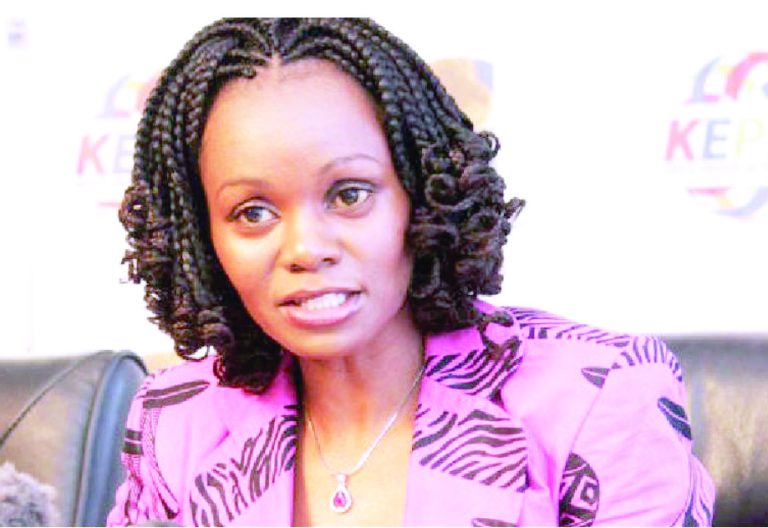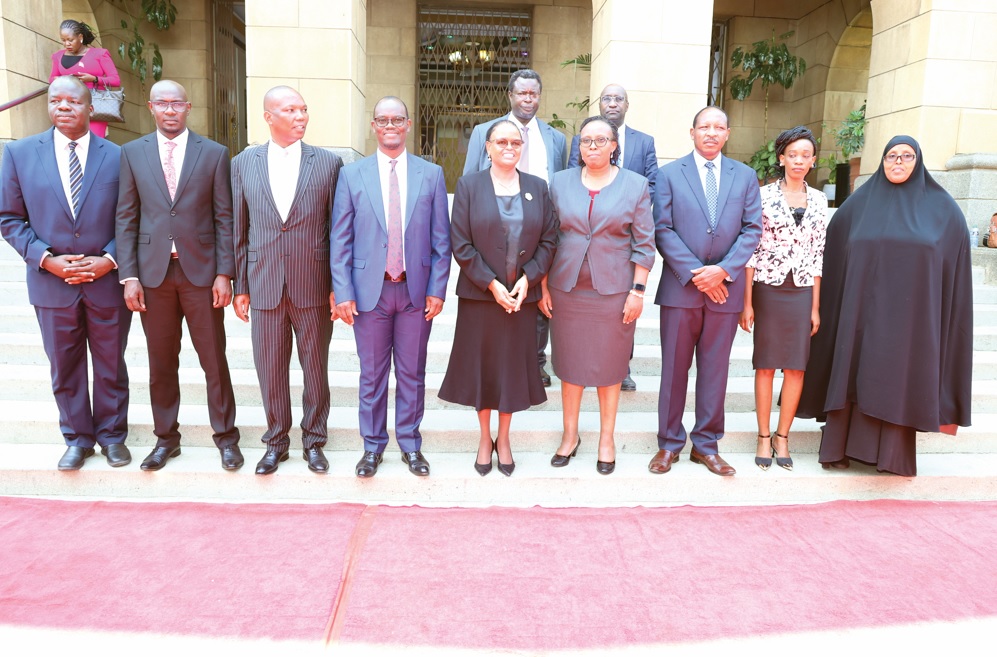Be guided by law, IEBC selection panel told
By Bernice.Mbugua, March 3, 2023Chief Justice Martha Koome yesterday urged seven members of the Independent Electoral and Boundaries Commission (IEBC) selection panel who will recruit the next electoral commission chair and commissioners to discharge their mandate fairly and in accordance with the law.
Koome, who presided over the swearing in ceremony of the seven members yesterday, noted that the members had an enormous responsibility of ensuring the process contributes to national unity and stability given the country’s electoral history.
“You are intended to be a major facilitator of the realization of an electoral body composition that is fair and just in accordance with the constitutional edict….I have confidence that you will perform the task before you within the confines of the law,” she said.
Merited appointment
The panel was gazetted by President William Ruto on February 27.
The members of the panel include Bethuel Sugut and Novice Euralia Atieno, from the Parliamentary Service Commission, chairman of Political Parties Liaison Committee Evans Misati James and Benson Ngugi Njeri from Law Society of Kenya.
Others are Charity Kisotu, Nelson Makanda and Fatuma Saman.
Koome expressed confidence in them saying their appointment was merited since they were distinguished professionals in their fields.
The seven are expected to recruit the next IEBC chairperson to succeed Wafula Chebukati who retired in January at the end of his term.
Also to be replaced are six commissioners among them Boya Molu and Yakub Guliye whose term also expired.
The panel will also replace former IEBC Vice Chair Juliana Cherera, Francis Wanderi and Justus Nyang’aya who resigned.
Irene Masit, who was removed from office following recommendations of a tribunal formed to investigate her conduct, will also be replaced.
The President officially gazetted her sacking on Thursday.
In the gazette notice, Ruto also announced the vacancy of her position as commissioner of IEBC noting that the recommendations of the Tribunal were binding on the Head of State.
Four petitions had been filed against Masit and former colleagues accusing them of failure to follow the set-out guidelines for the verification, tallying and announcement of the presidential elections and agreeing to the proposal to alter the results of the presidential elections in favour of one candidate or in the alternative to force a run off.
They were also accused of swearing affidavits in support of petitions challenging the presidential election results demonstrating incompetence on their part.
More Articles

